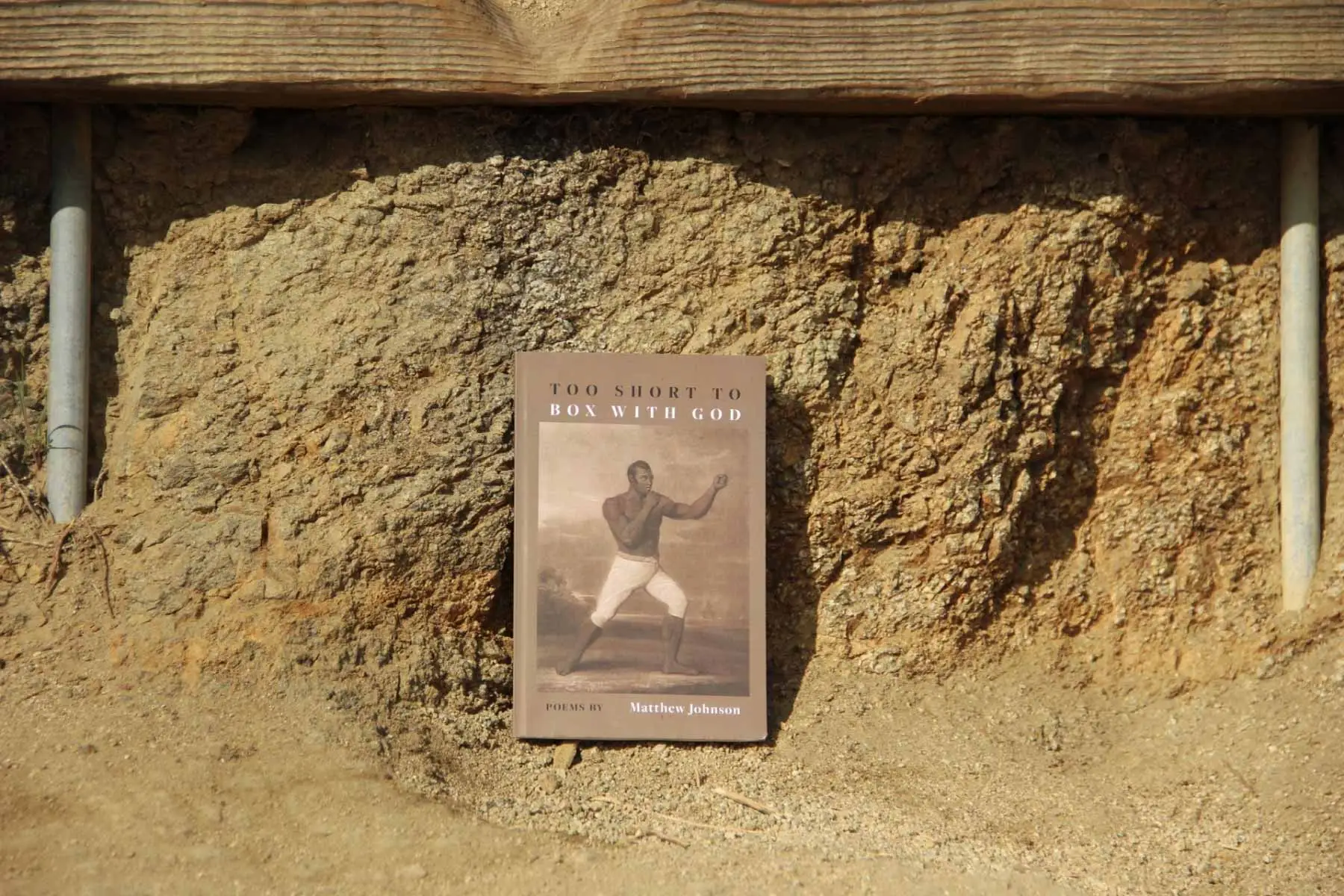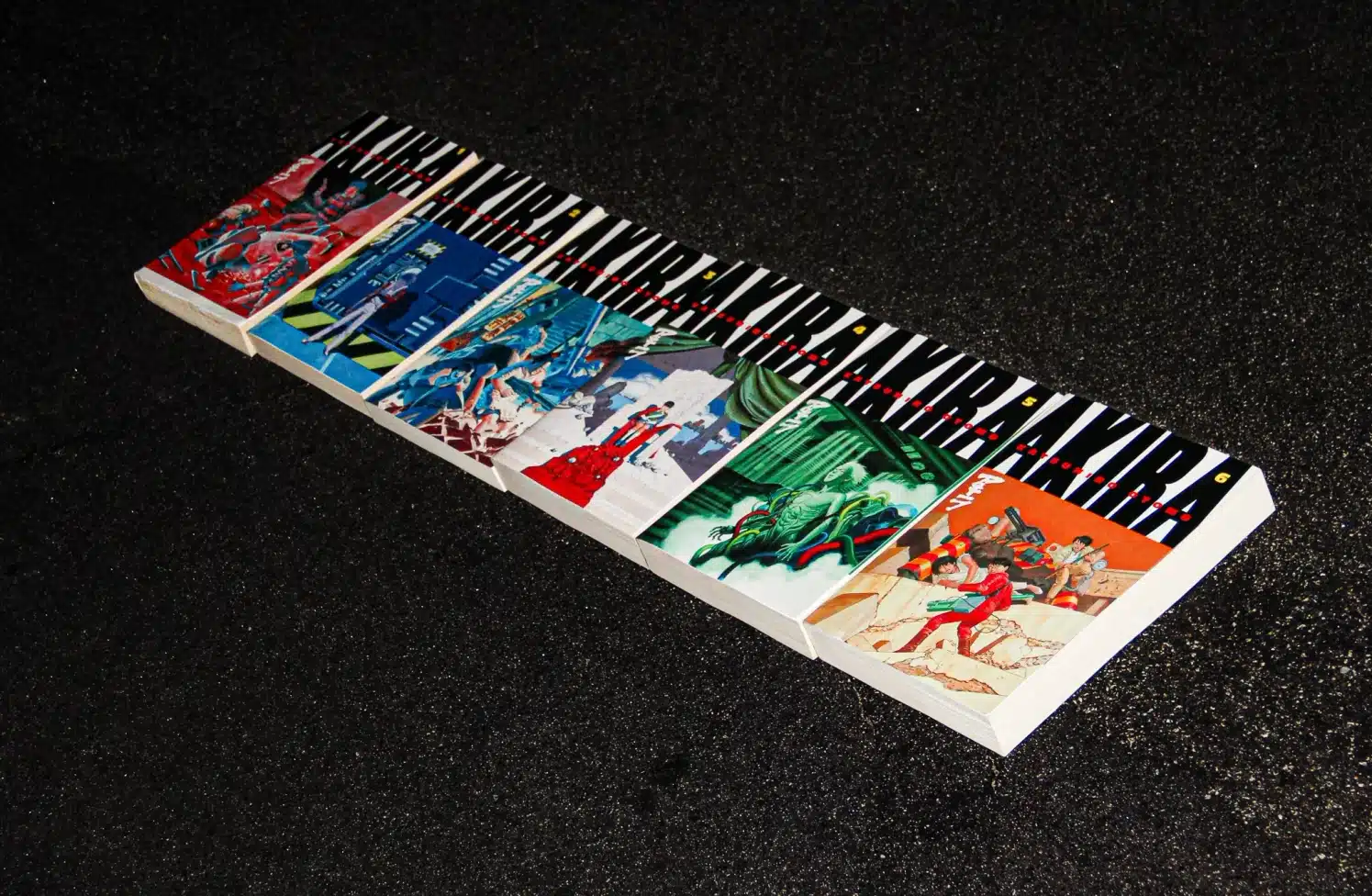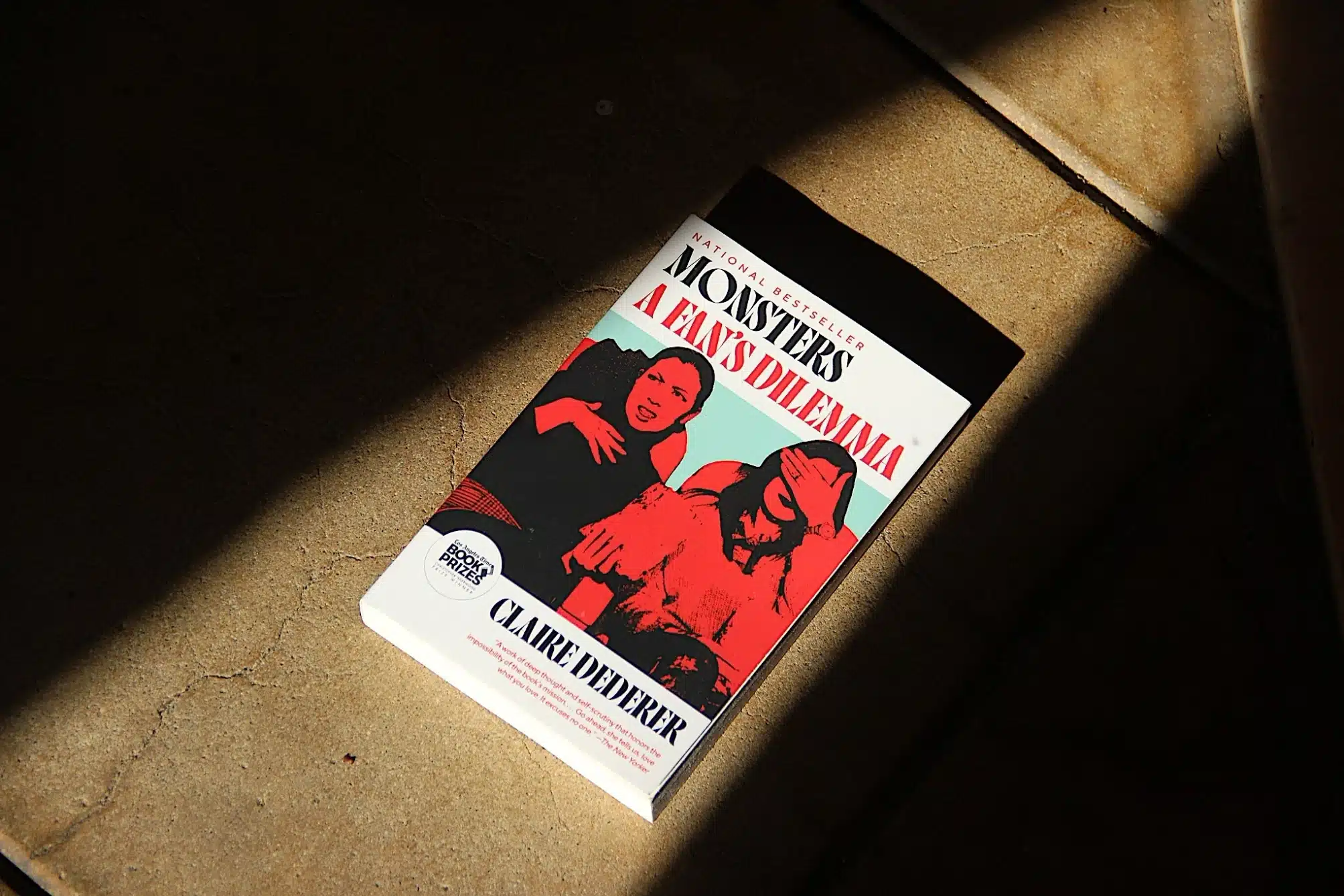

As an Amazon Associate, we earn from qualifying purchases.
TLDR
The original saying of “Your arms too short to box with God” came from a James Weldon Johnson poem, “The Prodigal Son.” The first stanza from this classic and spiritual poem reads:
“Young man—
Young man—
Your arm’s too short to box with God.”
And in another part of the poem:
“Young man—
Young man—
Smooth and easy is the road
That leads to hell and destruction.
Down grade all the way,
The further you travel, the faster you go.
No need to trudge and sweat and toil,
Just slip and slide and slip and slide
Till you bang up against hell’s iron gate.”
Johnson’s poem, from which the title was derived, is a poem about trying to control God’s fate instead of trying to understand it. It’s a huge warning to the young man in the poem, whom the speaker is talking to. In our current world, we tend to like control. We like independence.
In the same vein, Matthew Johnson’s poetry collection is a deep dive into an old and precious sport, boxing, and its intertwined history with literature, politics, race and religion. The poems are a demonstration of Johnson’s in-depth knowledge about the sport and about other figures in history, like boxers Muhammed Ali and Joe Louis, among others. It is evident how much Johnson knows. Even more so, his passions for the sport and for poetry are undeniable in this collection.
The collection is easy to read and can be finished in one sitting. As a reader with limited knowledge in boxing, the marriage of boxing and history in these poems intrigued me. I felt that I was having a conversation with the poems on life, history and sports. The act of fighting works as a symbol: we’re not all boxers, but we all confront difficult times in our lives. The keys are belief and persistence.
Summary: 20 Short Poems About Race, Politics and History Through the Lens of Boxing
This poetry collection uses boxing as a thread for a discussion on sports and racism. Many boxers mentioned, like Sam Longford and Jack Johnson, fought and won matches at a time when there was constant hostility in the streets. Inside the ring, boxers were winning. Outside the ring, riots were happening in the streets against Black Americans.
From the poem, “The Dilemma of Rooting for Jack Johnson”:
“They even pay him to knock the teeth in of white men; / I want him to win, but the white folks get mad when he do.”
Boxing took on such a significant meaning among the public, especially when many Black boxers came from humble beginnings and their skills were self-taught. But they were winning.
There are 20 poems in the collection. Some poems meditate on the cross between sports and black history. Other poems are a tight embrace into the author’s life. In some poems, he is imagining his childhood when he imitated boxers and fought his brother, hidden away from the concerned eyes of his parents.
From “Bulky Winter Gloves”:
“The closest we got to the ring was when one parent was working, / And the other was downstairs, fixing dinner in the kitchen,”
Then there are the poems that acknowledge writers, poets…
From “The Manassas Mauler on the Canvas”:
“…there is humanity in seeing the best of boxers out of rhythm, / As if he was one of us up there, and there is also a moment / To contemplate, as the writers lift him back into the ring; / We’re just too close to so much destruction.”
The poems are conversational, like speaking to a friend, and they are rich with knowledge and feeling. None of the poems span more than half a page or a page, making it easy to consume.
Poems and Books Like ‘Too Short to Box with God’
It’s interesting that many poets are sports lovers, but not all poets will include sports in their work, especially in full collections. However, it doesn’t mean poets don’t write sports poems. I found these individual poems on sports while perusing through sports poems. They carry similar tones of meditations on injustice, sincerity and how sports reflect life.
Terrance Hayes from the poem “Talk” on silence and wisdom in a moment of injustice:
“and if you’re thinking my knuckles knocked
a few times against his jaw or my fingers knotted
at his throat, you’re wrong because I pretended
I didn’t hear him, and when he didn’t ask it again,
we slipped into our middle school uniforms
since it was November, the beginning
of basketball season…”
Kobe Bryant once wrote a poem to basketball: (From “Dear Basketball”):
“And we both know, no matter what I do next / I’ll always be that kid / With the rolled up socks”.
James Wright from “Autumn Begins in Martins Ferry, Ohio,” writing about working class men watching their sons play football:
“Therefore, / Their sons grow suicidally beautiful / At the beginning of October, / And gallop terribly against each other’s bodies.”
Hanif Abdurraqib from his book on basketball “There’s Always This Year”:
“I love the homecoming because I have known what it is to leave. I have seen the city I love from the sky just as I have seen the city I love from the cracks in between metal bars. Cherish the homecoming, because you know what lasts forever and what does not.”
At The Rauch Review, we care deeply about being transparent and earning your trust. These articles explain why and how we created our unique methodology for reviewing books and other storytelling mediums.
Audience and Genre: For Any Poetry Lover, Especially Those Who Happen to Be Boxing and History Buffs
The poems are written conversationally and in free verse. If I could read these poems — being not so knowledgeable about sports — then anyone can read it.
If I didn’t know a famous name, I looked it up. I liked dissecting biographical figures and reading about them, past what’s provided in the poems. I felt that I was alongside the author, knowing and understanding these individuals who fought under so much pressure inside and outside the ring. This accessibility means that even if a reader isn’t interested in sports, a little curiosity about people and history will go a long way.
The poetic language of this collection is also easy to understand. Anyone can pick up and read it, with no previous poetic knowledge needed.
Themes: The Black American Experience and Racism
Johnson’s poems are filled with rich moments of Black boxers fighting relentlessly against the backdrop of racist America.
In “They’ll Be Talking About the Fight of the Century Forever”:
“All of the country converged to watch and listen to these two young men, / Caught in the nation’s tidal wave of politics and race and divisions, go at it: Joe Frazier, the plodding slugger out of Philly, / Who could make smoke come out of his gloves, / Against Muhammed Ali, the preening, carnival-barking Muslim / out of Louisville,”
The poems are urgent and filled with a rush. Then Johnson ties you in with poems like “I Enjoy Little, Brown Clay,” which feel calmer, even more reflective:
“Laugh and discuss for awhile / The greatness of God, black / And all things untamed / That scar the ranklins / And flame white upset. / And I, / Perusing that photograph / Belonging to unmoved time, / Am just a smile.”
The collection tends to distance you with a boxing match and then pull you closer with snippets of coming-of-age from Johnson’s own life, making readers lean in closer, waiting to see what happens next.
In “We Tell the Sad Stories of Aging Boxers,” Johnson writes about Ali’s aging body fighting against Larry Holmes and the match that shouldn’t have happened.
For a moment time is frozen, and we are sitting with him, legs kicked up on a chair, with a drink in hand. The striving continues.
Poetry Form: Free Verse and Conversational
Johnson’s poems have elements of narrative poetry, like characters and plot. Ultimately I’d categorize his poetry as free verse, as there is no set structure. Line breaks are used to emphasize one line over another. As a reader, I follow the poems freely, sometimes finding rhythm, other times finding more interest in the snapshots of a story. Mostly I felt carried by Johnson’s strong, conversational voice.
From “More Science Than Sweet”:
Their pain goes unmentioned unlike the superstars,
And their names are typically forgotten beyond the ropes
And those who follow the sport.
And sill, while often ignored by the mass.
No glory dilutes the love.
Tone and Mood: A Highlight Reel in Poetry Form
Johnson’s tone throughout the collection is that of admiration and nostalgia. His admiration of Black boxers and sportsmen shows throughout the collection as he writes about specific moments in history and relives the greatness (See: “The Night Joe Louis Defeated Max Schmeling”). We get snapshots of his childhood, as he remembers copying his boxers (“When my brother and I saw his spittle on my mitt. I ended my career as the undefeated, mini-flyweight champion…”). This admiring tone set against America’s resistance of Black greatness in sports is a distinctive juxtaposition indeed. As a reader, I can only reflect on how hopeful people felt at the time, watching Black boxers win in the ring. This juxtaposition is the very reason a reader might lean further into this collection, because it’s important to know the story of our country. More than that, persistence always triumphs.
Personal Opinion: A Brave Attempt Bringing Boxing and Poetry Together
I’ve always been interested in poets who can unify sports and poetry. Hanif Abdurraqib, whose book, “There’s Always This Year,” is a portrait of basketball and its many meanings, drawn from Abdurraqib’s own obsession with basketball as a kid. In one of his interviews about the book, Abdurraqib said it’s easy to think of Lebron James as a timeless player, even though he is aging and so are we. Lebron James’ persona will be tied to childhood memories in a way that makes us freeze the image of him in our minds, even as time moves on, as things change. We cling to the memories of ourselves trying to dunk on our friends and thinking we’ll become famous.
Though I’ve been interested in the marriage of sports and poetry, I’ve shied away from it myself as a writer. The most I know about sports are the hollerings of my brother at the screen during the playoffs, or the passionate monologues of my students on WWE and Braun Strowman that distract our entire teaching session.
Despite my limited knowledge, I was surprised at how easily I could read this poetry collection. I did feel overwhelmed at times with the various facts, but an easy search on Google cured that. If anything, I think the collection can be longer, and that Johnson has even more to share on this topic.
Like many sports, boxing is a reflection of life: the things we must confront head-on and the times we must step back, wait for our opponent to take a swing, predict what will happen next. But will we ever predict it accurately? In the end I walked away with a more spiritual reflection based on the title: Never bite off more than you can chew. Try to understand your life rather than expect it. Don’t ever forget you are too limited to win a match against God.
Conclusion: A (Too) Short, Unique Poetry Collection Worth Buying
For people who love poetry, history or sports, the only barrier to buying this collection is that it’s a minimum of $17.99 for 20 poems that amount to around 40 pages. Even for a poetry book, this amount is on the short side. Nonetheless, these pages are packed full of meaning. Those who seek full understanding may find themselves spending as much time here as with a long collection.
Bottom line: If you enjoyed hearing about sports and Black history in this review, I think you need to buy this collection. Even if you didn’t, still buy this collection because it’s a window into our history. And we must all know it well and understand it. And who knows? Maybe you’ll find yourself subscribing to ESPN.
Buying and Rental Options
E-Commerce Text Purchases
Get recommendations on hidden gems from emerging authors, as well as lesser-known titles from literary legends.






